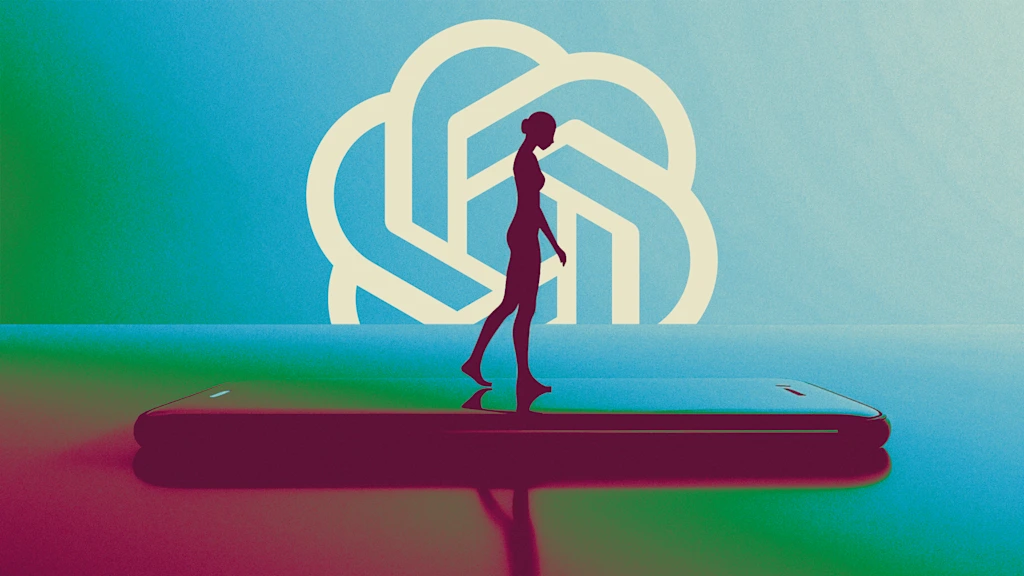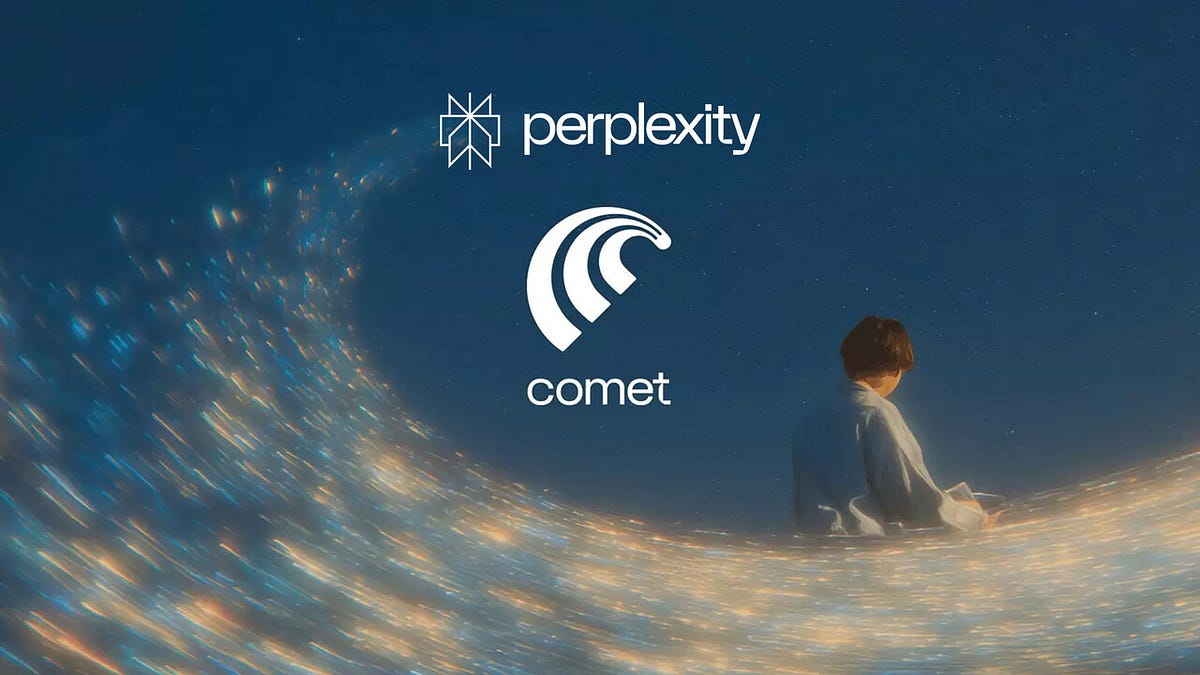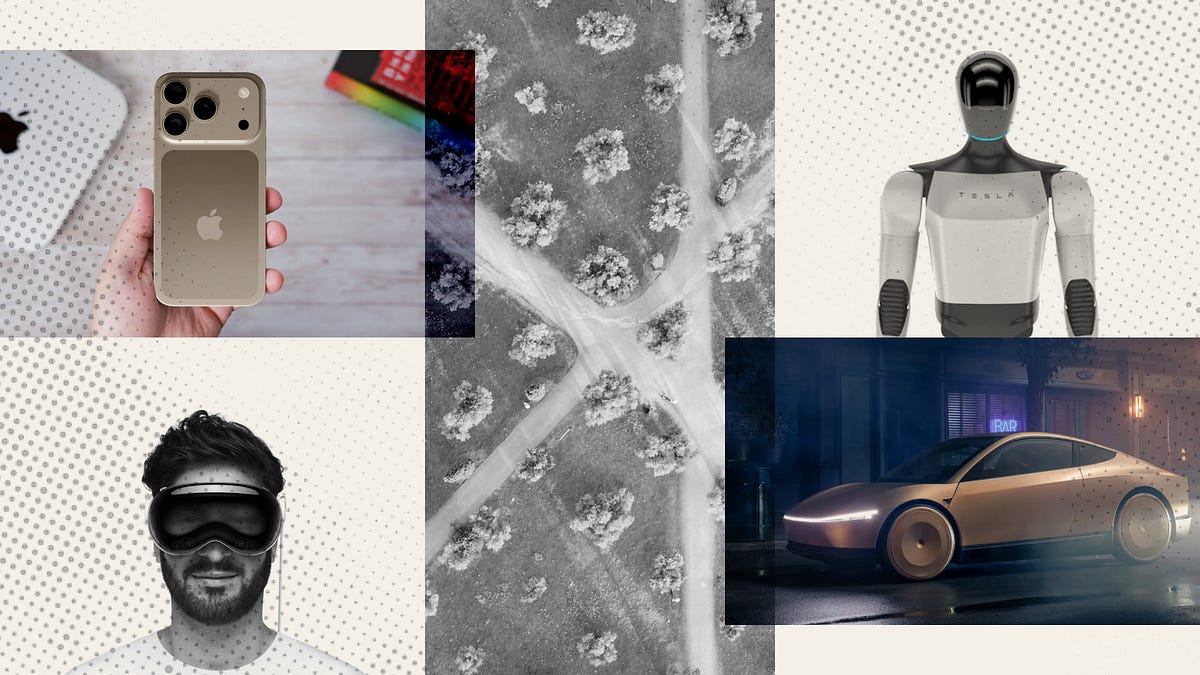#product-strategy
#product-strategy
[ follow ]
#innovation #openai #user-research #customer-feedback #customer-experience #ux-research #founder-mindset #ai-ux
fromYanko Design - Modern Industrial Design News
3 weeks ago6 Reasons Why Apple Needs to Build a Clamshell iPhone Flip (And 1 Reason It Shouldn't) - Yanko Design
When folded, it's roughly the size of the Mini, maybe even smaller depending on how thick the hinge is. When unfolded, you get a full 6.1-inch or 6.7-inch display, same as the regular iPhone or Pro Max. The people who loved the Mini weren't asking for a smaller screen, they were asking for a phone that didn't dominate their pocket or require two hands for basic tasks. A clamshell gives them that portability without forcing them to squint at a 5.4-inch display.
Apple
fromTheregister
1 month agoAWS destiny: becoming the next Lumen
For a decade, AWS's position on multi-cloud was clear: don't. Multi-cloud meant a lowest-common-denominator architecture. Multi-cloud meant giving up the managed services, the security integrations, the features that justified the lock-in. Multi-cloud was for that indecisive tranche of companies that couldn't commit. And until 2019, mentioning other clouds at all was forbidden at AWS conferences. Then in November 2025, AWS launched AWS Interconnect with Google Cloud as a launch partner,
Tech industry
Marketing tech
fromThe Drum
1 month agoSnapchat takes swipe at competitors' under-emphasis on sound, calling muted video advertising 'moving banners'
Snapchat prioritizes sound-rich, immersive ad formats and a unified product team to create engaging advertising that differentiates it from competitors' silent 'moving banner' video ads.
fromThe Bootstrapped Founder
1 month agoWhy Easy Data Import & Export Boosts Software Retention
Sometimes software founders are a weird bunch. They've built their businesses on open source software and the contributions of people who've done a lot of work for free. They've benefited at great length from infrastructure and tooling built on open standards that facilitate free exchange of data and ideas. Yet when it comes to their own software business, they hold the opinion that you should have as much vendor lock-in as possible when it comes to your users.
Growth hacking
fromNewsmax
2 months agoInstagram Memo Urged Focus on Teens Despite Harm Lawsuits
Even as Meta Platforms faced sweeping lawsuits from state attorneys general accusing the company of harming children, Instagram's top executive urged employees to keep one priority above all else: recruiting more teenagers. In a Nov. 6, 2023 internal memo, Instagram chief Adam Mosseri told staff to stay "laser focused" on teens, particularly in developed markets, placing that goal above work on Threads, Meta's text-based app launched earlier that year.
Social media marketing
fromFast Company
3 months agoTim Cook's track record as Apple CEO is better than you're giving him credit for
Many of these same people are now hoping that Apple's next CEO will be Apple's current senior vice president of hardware engineering, John Ternus. They see Ternus as a "product guy" like Jobs. Or, probably more accurately, they see Ternus as a "product guy" unlike Cook. But I think that this does Cook a disservice. And for the good of the company, I hope whoever ends up taking the reins is as much like Cook as they are like Jobs.
Apple
Growth hacking
fromLondon Business News | Londonlovesbusiness.com
3 months agoThe product operating system: How Rupon Anandanadarajah builds scalable growth foundations for modern SaaS - London Business News | Londonlovesbusiness.com
SaaS companies grow consistently by implementing strong Product Operating Systems—disciplined discovery, decision-making, experimentation, and measurement—rather than treating roadmaps as strategy.
fromThe Drum
3 months agoSkype's quiet death is a loud warning for marketers
Microsoft confirmed it will shut down Skype this May, slipping the news into an update with all the fanfare of a software patch. A flat note: "Starting in May, Skype will no longer be available. Continue your calls and chats in Teams." No grand farewell. No tribute to one of the most culturally significant tech brands of the internet era. And that silence is telling.
Marketing
Artificial intelligence
fromMuse by Clios | Discover the latest creative marketing and advertising news. Muse by Clio is the premier news site covering creativity in advertising and beyond.
3 months agoAI's Magic Trick: How Creativity Became the Trojan Horse | Muse by Clios
AI used accessible creative tools to gain trust and budgets, then pivoted into enterprise, prompting reduced investment in consumer creative AI.
fromSmashing Magazine
3 months agoA Practical Guide To UX Strategy - Smashing Magazine
UX Strategy isn't a goal; it's a journey towards that goal. A journey connecting where UX is today with a desired future state of UX. And as such, it guides our actions and decisions, things we do and don't do. And its goal is very simple: to maximize our chances of success while considering risks, bottlenecks and anything that might endanger the project.
UX design
fromMedium
4 months agoAPI-First or AI-First? The New Strategic Dilemma
The technology landscape has shifted beneath our feet. For the past decade, "API-first" was the mantra that guided architectural decisions across the industry. Build robust APIs, enable integrations, create ecosystems, this was the playbook. But in 2025, as AI capabilities become increasingly sophisticated and accessible, CTOs and technology leaders face a new question: should we be AI-first instead? This isn't just a technical question. It's a strategic one that will define competitive positioning, development velocity, and product differentiation for years to come
Artificial intelligence
UX design
fromHarvard Business Review
4 months agoHow Tech Product Managers Can Drive Innovation by Focusing on Customer Needs - SPONSOR CONTENT FROM CAPITAL ONE
Prioritize validated customer problems over building appealing features to ensure product-market fit, stakeholder alignment, and team readiness for execution.
Health
fromFortune
4 months agoMy company 'died' three times, including a full pivot back to our roots after a $60m series B. It's the test most VC-backed startups face | Fortune
Corti chose conviction over an easy exit, pivoting from Hyvi research to clinical-grade, real-time healthcare AI and adapting product strategy through COVID.
fromLogRocket Blog
4 months agoWhy great narratives beat OKRs in early-stage products - LogRocket Blog
If you've ever worked in or around startups, you've definitely seen it: a small team, new funding, great enthusiasm, and a whiteboard full of objectives and key results (OKRs). Everything appears polished, strategic, and "grown-up." However, for early-stage products, the polish might be a trap. In the early, messy, uncertain stages of product development, narrative always outperforms strategy. A compelling story not only guides your team, but it also persuades investors, early adopters, and potential hires to believe in something that doesn't exist yet.
Startup companies
fromBusiness Insider
5 months agoTim Cook might be ceding the battle to Meta in the race for the face computer
Remember the Apple Vision Pro? Remember? It was a big, ambitious swing from Tim Cook and Co. - a $3,500 headset that lets you experience "augmented reality" - or, if you follow Apple's demands for branding - " spatial computing." Apple first showed off the Vision Pro in the spring of 2023, and then started selling the device in February 2024, and since then ... you really haven't heard much about it.
Apple
fromYanko Design - Modern Industrial Design News
5 months agoThe CMF Headphone Pro is almost like an apology for the quirky $299 Nothing Headphones - Yanko Design
Where the Nothing Headphone (1) was all sharp angles and see-through panels, the CMF version is chunky, colorful, and aggressively normal. Where the flagship cost almost three hundred bucks, this one will probably land somewhere around the hundred-dollar mark. Most telling of all, where the original headphones seemed designed to make you explain your choice to everyone who saw them, these new ones look like they're trying to blend into every coffee shop and college campus in America.
Gadgets
fromTechCrunch
5 months agoDiscord founder Jason Citron returns to Disrupt 2025 | TechCrunch
More than a decade ago, Jason Citron took the Disrupt stage to pitch his early-stage company in the Startup Battlefield competition at TechCrunch Disrupt as a scrappy founder pitching his vision. Today, he's built Discord into one of the most successful consumer platforms of its era - valued in the billions and redefining how communities connect, game, and share online.
Startup companies
fromThe Verge
5 months agoNothing is launching first 'AI-native devices' next year
At the heart of Nothing's plans is AI. Pei said the company is "building the foundations for the future" on a focused "AI OS" to deliver a "hyper-personalized experience." However, it's unclear if Nothing's operating system ambitions are built on top of Android like Nothing OS. We've reached out for clarification. This "AI-native platform" will run hardware in widespread use today like smartphones, headphones, and smart watches, Pei said,
Gadgets
fromGSMArena.com
6 months agoGoogle officially admits that it's given up on tablets
We've heard various reports about it having planned two more generations at least, but then we also heard those were canceled. Now, the company itself has finally acknowledged the situation and confirmed that it's given up on tablets "until it figures out a meaningful future for the category", according to a Bloomberg report, which goes on to say that "at least for the foreseeable future, Google doesn't imagine a scenario where users are carrying much more than their phone".
Mobile UX
fromLogRocket Blog
6 months agoWhy you shouldn't ignore niche app user types - LogRocket Blog
It makes sense because these users are easier to source for research and quick to adopt new features. However, many teams miss out on an important opportunity by developing for so-called "niche" or "edge" users. These users, whether they're first-time digital users (FTDUs), persons with low literacy, older adults, people with disabilities, or those in low-connectivity situations, constitute a sizable proportion of the global population. In many markets, they even make up the majority.
UX design
fromBusiness Matters
6 months agoHow Niche AI Products Are Finding (or Failing to Find) Traction in the Consumer Market
The artificial intelligence boom is creating billion-dollar brands almost overnight. From workplace productivity to AI-generated art, there's a tool for just about everything. But while many companies chase the mass market, a growing number are focusing on a different strategy: going small. These are the "niche AI" products - built for highly specific audiences and purposes. Some carve out profitable, loyal user bases. Others burn bright and fade quickly.
Artificial intelligence
[ Load more ]











